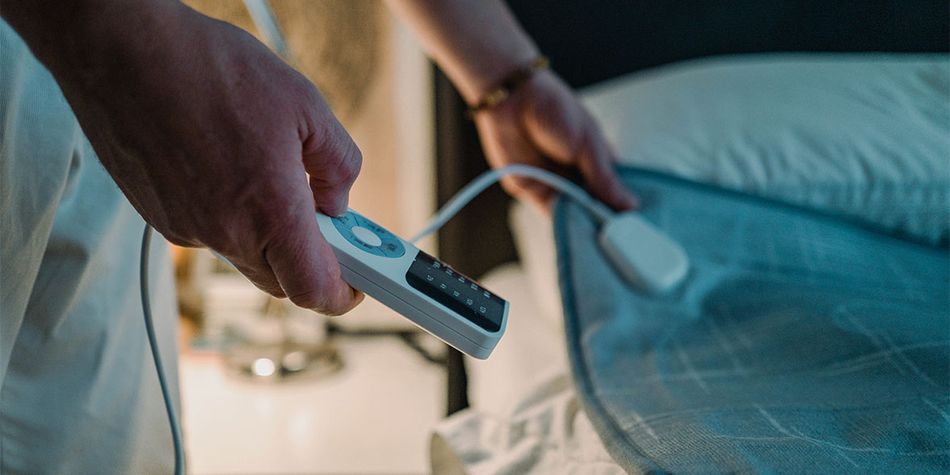By clicking a retailer link you consent to third-party cookies that track your onward journey. This enables W? to receive an affiliate commission if you make a purchase, which supports our mission to be the UK's consumer champion.
Getting around safely on snow and ice

During winter, snow, ice and freezing temperatures can make getting around more challenging and increase the risk of slips, falls and travel disruption.
Cold weather can also pose health risks, particularly for older people and those with existing conditions.
As the cold weather sets in, read our practical tips on how to move around safely in icy and snowy conditions – and how to help protect yourself and your loved ones when the weather turns cold.
Travelling on foot safely
Whether it’s an essential journey or a quick walk, you should allocate extra time to get from A to B.
Stick to gritted paths where possible and make sure your shoes have a good grip – check out our guide to the best walking shoes if you need a new pair. We have also rated the best walking poles for extra support.
If you or a loved one has mobility issues, consider investing in a walking aid. See our advice on the top-rated mobility scooters and rollators and mobility walkers from our tests.
For peace of mind, elderly relatives can wear a personal alarm that allows them to seek assistance if they have an accident or a fall.
Clearing your driveway

The Department for Transport (DfT) has issued the following advice for clearing snow and ice from driveways and paths:
- Do it early in the day – it's easier to move fresh snow.
- Don't use water – it might refreeze and turn to black ice.
- Use salt if possible – this will melt the ice or snow and stop it from refreezing. If you have ash or sharp sand handy, this can also help.
See our tips on five ways to stay healthy this winter to help you stay fighting fit during the worst of the weather.
Travelling in bad weather

Snow and ice can make travel hazardous. If conditions are severe, the Met Office or local authorities may advise against non-essential journeys – and it’s safest to delay travel where you can.
If you do need to travel, take extra precautions:
- By car: Stick to main roads that are more likely to be gritted. Many councils publish gritting routes online. In prolonged icy or snowy conditions, winter tyres can improve grip, while snow socks offer a lower-cost alternative for occasional use. We also have advice on how to jump start your car, if necessary.
- By train: Check the National Rail website before you set off for the latest updates, delays or cancellations on your route. Remember, you may have the right to be compensated if your journey has been delayed or cancelled.
Get advice on how to prepare your car for winter with our maintenance checklist.
If you fall on snow or ice

If you or a family member fall on icy or snowy surfaces, try to stay calm and take a moment to assess the situation. Check carefully for pain or injuries before attempting to move.
Call 999 immediately if:
- There are injuries to the head, back, neck, or hip
- The person cannot get up
- There is severe bleeding or obvious broken bones
While waiting for help, keep the person comfortable and warm. You can help them get up only if it is safe to do so – never try to lift someone yourself.
Even if injuries seem minor, it’s sensible to visit A&E or your GP if there is:
- Pain, swelling, or bruising
- Dizziness or difficulty moving
- Headaches, confusion, or persistent discomfort
Talk to staff to let them know:
- The contact details of close family and/or friends.
- Any prescribed medications you, or they, may be taking.
- Pre-existing conditions that may affect care, such as dementia or cognitive difficulties.
- Any allergies.
Private GP appointments: virtual and in-person private GP appointments, costs compared, and what to know about private vs NHS.
Keeping warm at home

If you prefer to stay indoors and avoid the harsh weather, make sure you and your loved ones are keeping warm at home.
With energy costs still high, many people are trying to cut back on their heating. However, cold temperatures can pose health risks and young babies and the elderly are particularly vulnerable.
Find out how you can keep warm for less with our cheap and easy heating hacks, as well as the best electric heaters and electric blankets in our tests. We also looked at whether a hot water bottle or electric blanket was better at keeping you warm in bed.
Our experts have tips on how to save money on your energy bills, without compromising on staying warm.
Finally, make sure you are taking care of your boiler – and that you know what to do if it breaks down.
If you're struggling with heating payments, you may be eligible for financial assistance. See our guide to winter energy bill payment schemes for more information.




